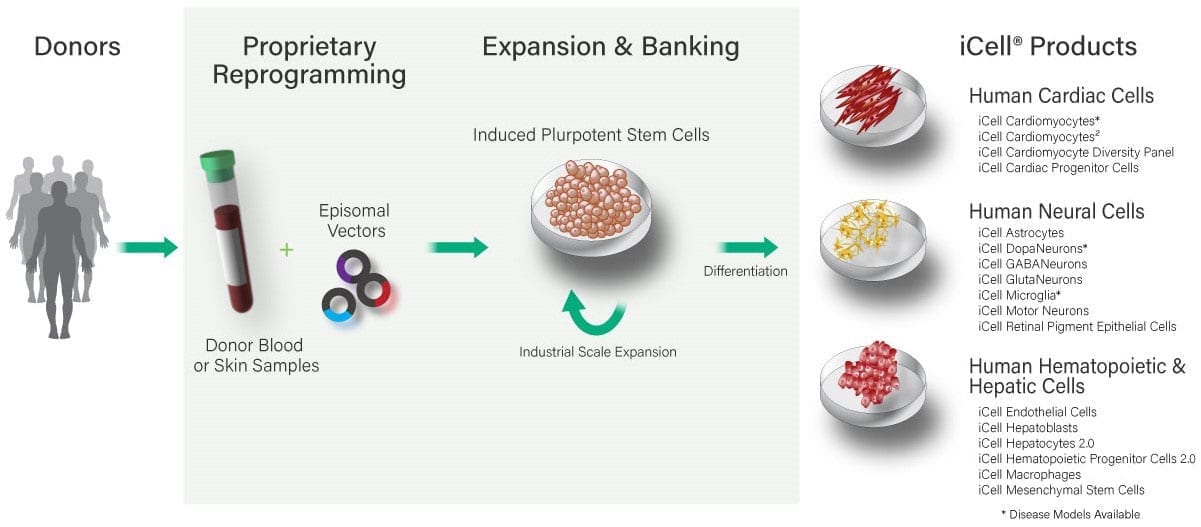Induced Pluripotent Stem Cells: Limitless Cells and Limitless Discoveries
Stem cells are early stage, undifferentiated cells that are found in all multicellular organisms. They are unique because they can survive and replicate indefinitely and have the capacity to differentiate into any cell type in the human body (pluripotency).
There are two general types of pluripotent stem cells:
- Induced pluripotent stem (iPS) cells: The basis for all FCDI products, iPS cells are reprogrammed and expanded from small samples of adult donor somatic (skin and blood) cells.
- Induced pluripotent stem (iPS) cells: Generated from cells, such as somatic cells , obtained from donors
Making Induced Pluripotent Stem Cells
The process of generating iPS cells is referred to as reprogramming and involves the directed expression of pluripotency genes in somatic cells. FCDI has developed and optimized an episomal reprogramming process that utilizes circular DNA vectors to deliver the pluripotency genes. Episomal reprogramming has significant benefits over other reprogramming methods, especially for clinical applications.

Only one simple blood draw is needed to produce a potentially unlimited supply of iPS cells. iPS cells are differentiated into a broad range of iCell cell types for research use. With FCDI’s cGMP manufacturing capability, cells are also being made for therapeutic applications.
Differentiating iPS Cells into Diverse Cell Types
After manufacturing iPS cells, FCDI uses proprietary methods to direct the cell differentiation mechanisms that can make industrial quantities of high quality, highly pure differentiated tissue cells, which include cardiomyocytes, neurons, and hepatocytes. Since first being described in 2007 (Takahashi et al., 2007; Yu et al., 2007), iPS cells and the resulting tissue cells derived from them have been produced from donors representing broad ethnic, genetic, and disease state diversity.
Changing the World of Medicine
In many instances, iPS cell-derived tissue cells can recapitulate relevant donor disease biology in the laboratory, a capability often referred to as “disease-in-a-dish.” This capability has led to new insights into mechanisms that underlie some of the most devastating human diseases, as well as powerful new approaches to disease modeling and drug discovery. With their advantages, iPS cell-derived tissue cells also provide a critical resource in the development of autologous cell transplantation clinical therapies.



